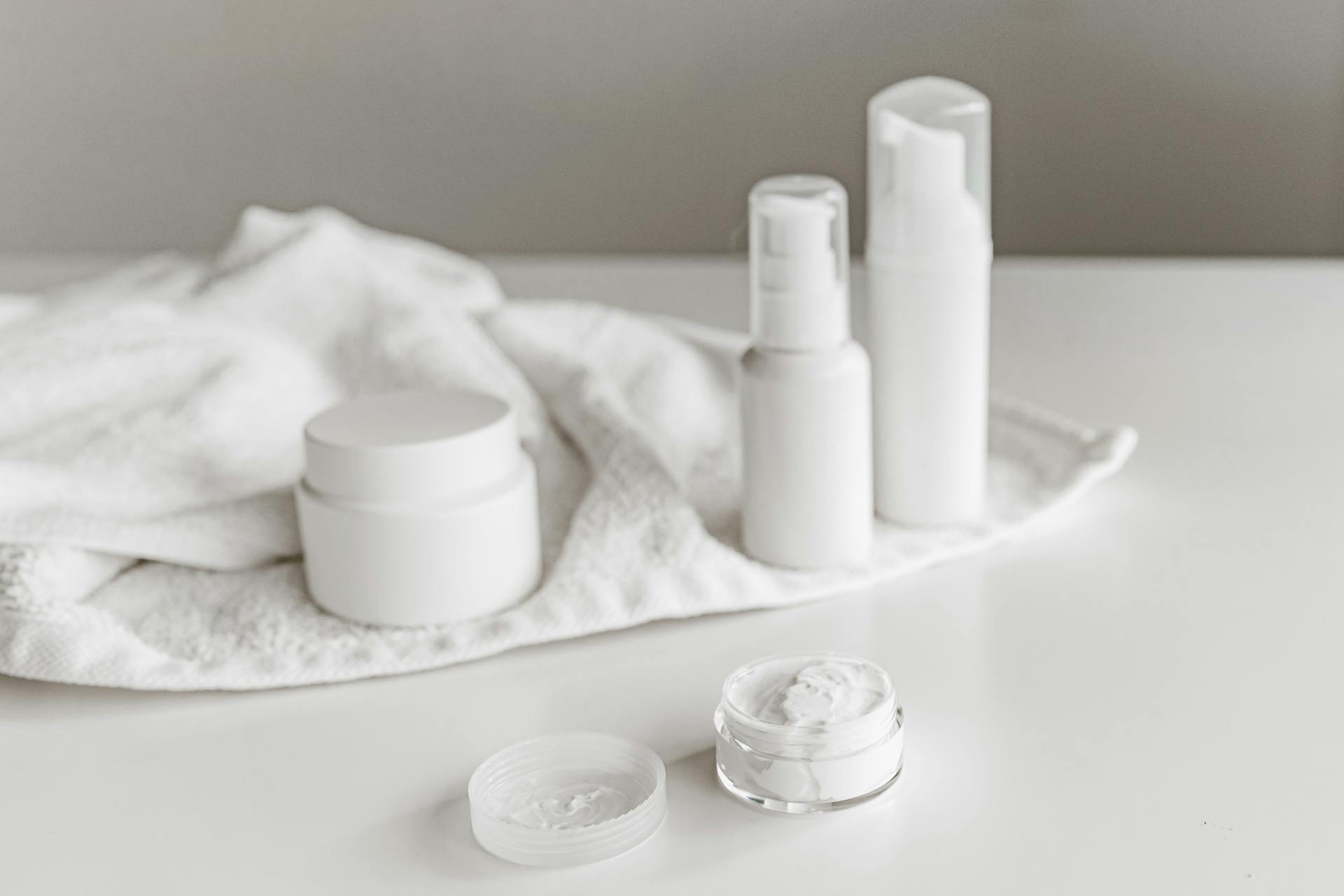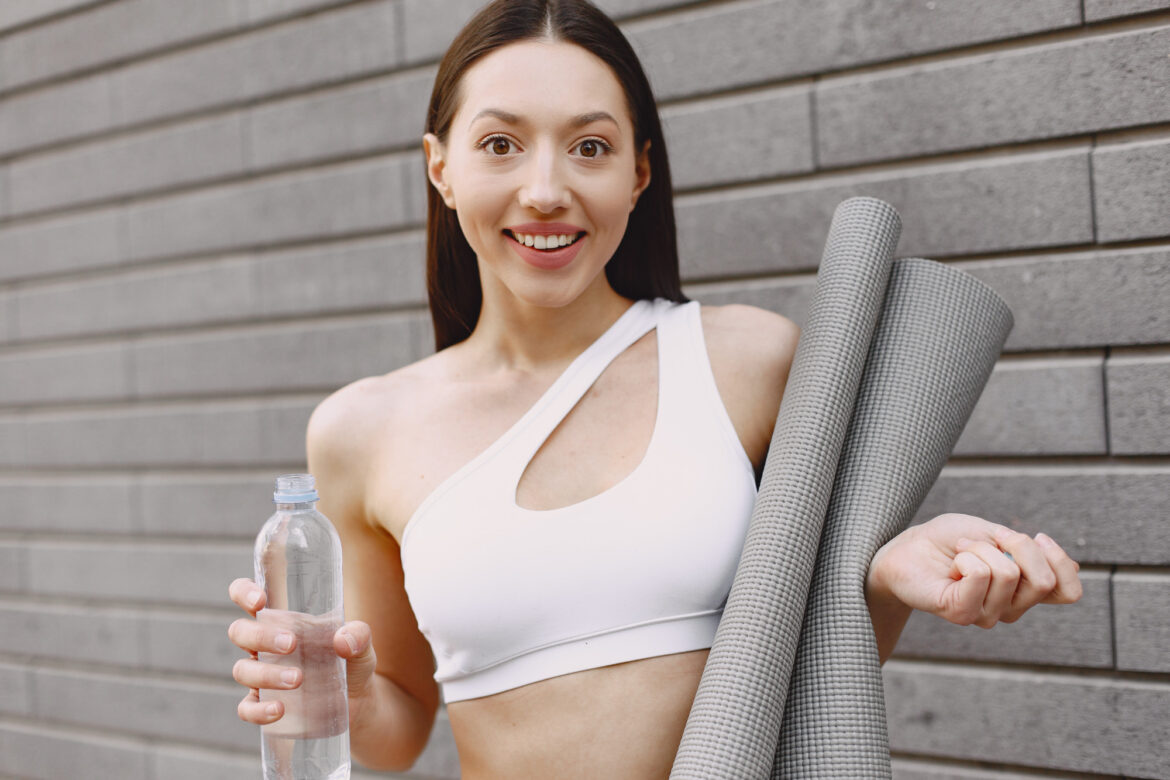Working out is fantastic for your body and mind. It keeps you fit, boosts your mood, and gives you that well-deserved endorphin high. But what about your skin? After a good workout, your skin needs some love too! A proper post-workout skincare routine is key to keeping your skin glowing, fresh, and free from breakouts. In this guide, we’ll break down everything you need to know about taking care of your skin after exercise. Whether you’re a gym-goer, a runner, or just someone who loves staying active, this guide is for you!
Also Read: Pre-Workout Skincare Routine: A Guide to Glowing Skin
Table of Contents
ToggleWhy is Post-Workout Skincare Important?
After a workout, your skin is sweaty and your pores are open. Sweat helps flush out toxins from your skin, but if it stays on your face for too long, it can mix with oil, dirt, and bacteria. This can lead to clogged pores, acne, and irritation. To prevent these problems, a good post-workout skincare routine is a must. It will help cleanse your skin, restore moisture, and keep it looking healthy and radiant.

Step-by-Step Post-Workout Skincare Routine
1. Cleanse Your Face Immediately
- Why It’s Important: After sweating, your skin needs to be cleaned as soon as possible. This helps remove sweat, oil, and dirt that could clog your pores.
- What to Use: Use a gentle, sulfate-free cleanser that suits your skin type. Look for a cleanser with hydrating ingredients like aloe vera or chamomile. Avoid using harsh scrubs, as your skin is sensitive after a workout.
- How to Use It: Use lukewarm water to rinse your face, and gently massage the cleanser onto your skin in circular motions. Rinse thoroughly and pat dry with a clean towel.

Recommended Products:
- CeraVe Hydrating Cleanser – A gentle, hydrating cleanser that suits most skin types.
- La Roche-Posay Toleriane Hydrating Gentle Cleanser – Perfect for sensitive skin.
2. Use a Soothing Toner
- Why It’s Important: A toner helps to balance your skin’s pH level and tighten pores that have opened up during exercise.
- What to Use: Choose an alcohol-free toner with calming ingredients like rose water or witch hazel.
- How to Use It: Apply the toner on a cotton pad and gently swipe it across your face, especially focusing on areas that tend to get oily.

Recommended Products:
- Thayers Alcohol-Free Witch Hazel Toner – Great for calming the skin and reducing redness.
- Mario Badescu Facial Spray with Aloe, Herbs, and Rosewater – Refreshing and soothing.
3. Hydrate with a Lightweight Moisturizer
- Why It’s Important: After a workout, your skin may feel dry due to sweat loss. A good moisturizer helps replenish lost moisture and keeps your skin soft.
- What to Use: Opt for a lightweight, oil-free moisturizer if you have oily skin, and a hydrating cream if your skin is dry. Look for ingredients like hyaluronic acid, which helps your skin retain moisture.
- How to Use It: Apply a small amount of moisturizer to your face and neck, and gently massage it in until fully absorbed.
Recommended Products:
- Neutrogena Hydro Boost Water Gel – Lightweight and packed with hyaluronic acid for hydration.
- Clinique Moisture Surge 72-Hour Auto-Replenishing Hydrator – A cream that provides long-lasting hydration.
4. Don’t Forget the Sunscreen (if you’re heading outdoors)
- Why It’s Important: If you’re stepping outside after a workout, sunscreen is a must. UV rays can damage your skin even on cloudy days, leading to sunburn, dark spots, and premature aging.
- What to Use: A broad-spectrum sunscreen with at least SPF 30 is recommended. Choose a non-greasy, sweat-resistant formula that won’t clog your pores.
- How to Use It: Apply sunscreen 15 minutes before heading outside, and reapply every two hours if you’re staying out in the sun.
Also Read: Do Homemade Sunscreens Actually Work? A Comprehensive Guide
Recommended Products:
- La Roche-Posay Anthelios Melt-in Milk Sunscreen – A non-greasy formula that offers strong sun protection.
- Neutrogena Ultra Sheer Dry-Touch Sunscreen SPF 100 – Lightweight and absorbs quickly.
Extra Tips for Better Post-Workout Skincare
1. Shower After a Workout
- Why It’s Important: A shower helps wash away the sweat and bacteria from your skin, reducing the chance of breakouts on your body.
- What to Use: Use a mild body wash to clean your skin without stripping it of its natural oils. Focus on areas prone to sweat, like your back, chest, and underarms.
- How to Use It: Make sure the water is not too hot, as it can dry out your skin. Lukewarm water is best for maintaining moisture.
Also Read: Should I Wash My Face With Cold Water or Hot Water? The Great Face Wash Debate
Recommended Products:
- Dove Sensitive Skin Body Wash – Gentle and moisturizing for all skin types.
- Aveeno Daily Moisturizing Body Wash – Hydrating and soothing for dry skin.
2. Avoid Touching Your Face
- Why It’s Important: During a workout, your hands come in contact with gym equipment and other surfaces. Touching your face can transfer bacteria to your skin, causing breakouts.
- What to Do: Use a clean towel to wipe sweat off your face instead of using your hands.
3. Keep Your Hair Away from Your Face
- Why It’s Important: Hair products like gels and oils can transfer to your skin, potentially clogging pores.
- What to Do: Tie your hair back or wear a headband during workouts to keep it away from your face.
Common Skincare Mistakes to Avoid After a Workout
1. Skipping the Cleanse
- Skipping the post-workout cleanse is a common mistake. The sweat and oil left on your skin can mix with dirt, leading to breakouts. Always wash your face after exercising.
2. Using Harsh Scrubs
- Your skin is more sensitive after sweating. Using harsh exfoliators can cause irritation. Stick to a gentle cleanser and exfoliate just 2-3 times a week.
3. Not Moisturizing Because of Oily Skin
- Many people with oily skin skip moisturizing, thinking it will make their skin greasier. However, if you don’t hydrate your skin, it can produce even more oil to compensate. Use an oil-free moisturizer to keep your skin balanced.
Recommended Products for Post-Workout Skincare
- Cleanser: CeraVe Hydrating Cleanser – A gentle, hydrating cleanser that suits most skin types.
- Toner: Thayers Alcohol-Free Witch Hazel Toner – Great for calming the skin and reducing redness.
- Moisturizer: Neutrogena Hydro Boost Water Gel – Lightweight and packed with hyaluronic acid for hydration.
- Sunscreen: La Roche-Posay Anthelios Melt-in Milk Sunscreen – A non-greasy formula that offers strong sun protection.
How to Customize Your Post-Workout Skincare for Different Skin Types
1. For Oily Skin
- Use a Gel-Based Cleanser: Helps control excess oil production.
- Opt for Oil-Free Products: Keeps your skin hydrated without adding extra shine.
- Apply a Mattifying Sunscreen: Prevents greasiness throughout the day.
Recommended Products:
- Murad Oil-Control Mattifier SPF 15 – Helps to control shine while providing sun protection.
- Clinique Dramatically Different Moisturizing Gel – Lightweight and oil-free.
2. For Dry Skin
- Use a Cream Cleanser: Provides extra moisture while cleansing.
- Apply a Rich Moisturizer: Helps restore hydration lost during a workout.
- Avoid Hot Showers: Hot water can strip your skin of its natural oils.
Also Read: Best Skincare Routine for Dehydrated Skin
Recommended Products:
- CeraVe Moisturizing Cream – Rich and hydrating for dry skin.
- Eucerin Advanced Repair Cream – Intense hydration for very dry skin.
3. For Sensitive Skin
- Use Fragrance-Free Products: Minimizes the risk of irritation.
- Choose Gentle Formulas: Look for calming ingredients like chamomile and aloe vera.
- Patch Test New Products: Always test new products on a small area before applying them to your face.
Recommended Products:
- Aveeno Ultra-Calming Foaming Cleanser – Gentle and calming for sensitive skin.
- First Aid Beauty Ultra Repair Cream – Soothing and hydrating for sensitive skin types.
Conclusion
Your post-workout skincare routine is just as important as your workout itself. By following these steps and choosing the right products, you can keep your skin healthy, hydrated, and glowing. Remember, the key is consistency. Make your post-workout skincare routine a habit, and your skin will thank you!
Additional Resources
- American Academy of Dermatology: Skin Care Tips for Active Lifestyles
- WebMD: Skin Care After Exercise
FAQ: Your Guide to Post-Workout Skincare Routine
1. Why is it important to have a post-workout skincare routine?
After a workout, your skin is exposed to sweat, dirt, and bacteria, which can lead to clogged pores and breakouts if not addressed promptly. A post-workout skincare routine is essential for removing impurities, restoring moisture, and maintaining the skin’s health. Proper cleansing and hydration help prevent irritation and breakouts, promoting a clear and radiant complexion. Moreover, certain products can help soothe the skin after exercise, making it less prone to redness or inflammation.
2. What should I use to cleanse my face after a workout?
It’s best to use a gentle, sulfate-free cleanser that suits your skin type. Look for ingredients like aloe vera or chamomile for hydration and calming effects. Avoid harsh scrubs, as your skin may be sensitive after sweating. For oily skin, a gel-based cleanser with salicylic acid can help control excess oil, while cream cleansers work well for dry skin to maintain moisture levels. Always wash your face with lukewarm water to avoid stripping natural oils and then pat dry with a clean towel.
3. How soon after my workout should I cleanse my face?
Ideally, you should cleanse your face as soon as possible after your workout—within 30 minutes is best. This window is crucial because sweat can lead to bacteria buildup and clogged pores if left on your skin too long. The longer sweat and impurities sit on your face, the higher the risk of developing breakouts or skin irritations. If you can’t wash your face immediately, consider using cleansing wipes as a temporary solution until you can perform a thorough cleanse.
4. Can I skip moisturizing if my skin feels oily after a workout?
No, it’s crucial to moisturize even if your skin feels oily. After exercising, your skin may lose moisture, prompting it to produce more oil to compensate, which can lead to breakouts. Instead, opt for an oil-free, lightweight moisturizer that hydrates without clogging pores. Ingredients like hyaluronic acid can provide hydration without the heaviness of traditional creams, helping to balance your skin’s moisture levels and prevent overproduction of oil.
5. Is sunscreen necessary after a workout, even if I’m indoors?
Yes, sunscreen is essential, even if you are indoors after a workout. UV rays can penetrate through windows, so you are still at risk for sun damage. Applying a broad-spectrum sunscreen with at least SPF 30 protects your skin from harmful UV rays, reducing the risk of premature aging, dark spots, and skin cancer. Reapply sunscreen every two hours if you are outdoors, and consider using a tinted moisturizer with SPF for added protection.
6. What should I avoid doing right after a workout?
Right after a workout, avoid touching your face with your hands, as they may carry bacteria from gym equipment. Additionally, refrain from using harsh scrubs or exfoliants immediately after exercising, as your skin is more sensitive at this time. Avoid hot showers, as hot water can strip away essential oils, leading to dryness. Lastly, skipping your post-workout skincare routine can lead to clogged pores and breakouts, so make it a priority.
7. How can I customize my post-workout skincare for sensitive skin?
For sensitive skin, it’s vital to choose gentle, fragrance-free products that reduce irritation. Use a mild, non-comedogenic cleanser that won’t strip your skin of its natural oils. Avoid toners with alcohol, as they can further irritate sensitive skin. Look for calming ingredients like chamomile, green tea, or aloe vera in your moisturizer. Always patch-test new products to ensure they don’t cause a negative reaction. If you experience irritation, consider consulting with a dermatologist for personalized recommendations.
8. What common skincare mistakes should I avoid after exercising?
Common mistakes include skipping cleansing, using harsh scrubs, and neglecting to moisturize. Additionally, many people overlook sunscreen after exercising, especially when heading indoors. Another mistake is using makeup immediately after a workout, which can trap sweat and bacteria on your skin. Lastly, not showering after a workout can leave sweat and impurities on your body, leading to body acne. Ensuring a proper routine will help prevent these issues.
9. Can I use the same products for my body as I do for my face after a workout?
While some products may be suitable for both body and face, it’s essential to be cautious. The skin on your body is typically thicker and less sensitive than the skin on your face. Body washes and moisturizers are often more robust and can be too harsh for facial skin. Look for products specifically formulated for facial care, especially if you have sensitive or acne-prone skin. However, hydrating body creams can work well for overall moisture, but avoid applying them directly to your face.
10. How often should I exfoliate as part of my post-workout skincare routine?
Exfoliation should be done 2-3 times a week, depending on your skin type. Over-exfoliating can lead to irritation, especially after workouts when your skin is sensitive. For oily or acne-prone skin, chemical exfoliants with salicylic or glycolic acid can help clear pores, while dry skin types should opt for gentle physical exfoliants with smooth particles. Always ensure to follow up with a hydrating moisturizer after exfoliation to keep your skin balanced and healthy.
